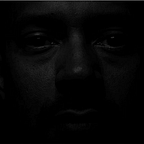Why Sustainability Needs Artists and Scientists to Collaborate
I’m going to develop my premise on the idea that our sustainability challenges are larger than the academic disciplines that are working to resolve them. They are real-world problems that require academics, both in the arts and sciences, to move out of their comfort zones if they want to have a serious impact in the world. But, if they are to move out of their comfort zones, what will they move into? I believe one way forward is what Herbert Simon coined “hot cognition”; a combining of the skills that scientists and artists have been trained in.This implies we address both the facts and how we feel about those facts.
But why do we need this?
Scientists have trained in a particular discipline, and manner of thought, looking for ways to uncover particular kinds of knowledge. The academic institution that scientists sit in requires that they adhere to particular methods that align with the discipline they have trained in and this brings about a narrow yet deep understanding of a particular subject. They have been as objective as they can be and now they want to tell the world what they know. But there’s one problem, their ability to communicate what they know is often presented in a dry, information rich, manner that only those particularly interested in the subject are willing to wade through. They have valid information but no way to communicate it in an engaging way.
Artists have also trained in a particular discipline, and manner of thought, looking for ways to uncover particular kinds of knowledge. Yes, I do believe artists are knowledge producers, but a different kind of knowledge from the scientist. Artists often look to uncover the subjective and visceral. They help articulate our place in the world, and how we feel about that experience. Yet, a personal subjective experience can be flawed with false assumptions about the world.
This is why we need “hot cognition”. As Herbert Simon states in his book Reason in Human Affairs, if we are to listen to our poets then they better get the information right. The real-world sustainability challenges we face require both accurate information about our world and a visceral and humanistic understand about why we should care about the state of the world. For this reason we need our artists and scientists in deep dialogue about how we take what we know and create meaning from it. Not to preach to others about how we are destroying the world but as a way to intelligently dialogue about where we are and where we want to go; to discuss what matters to us and how to move forward with those things, ideas, and values in our hearts and minds. We can no longer depend on our disciplines to show us the way, we need renaissance teams that bring us closer to a holistic understanding of the challenges we face and a way to engage the public in dialogue and potential action regarding the direction we want to move in. Let us begin a new renaissance not of individual men and women but of artists-scientists teams.
